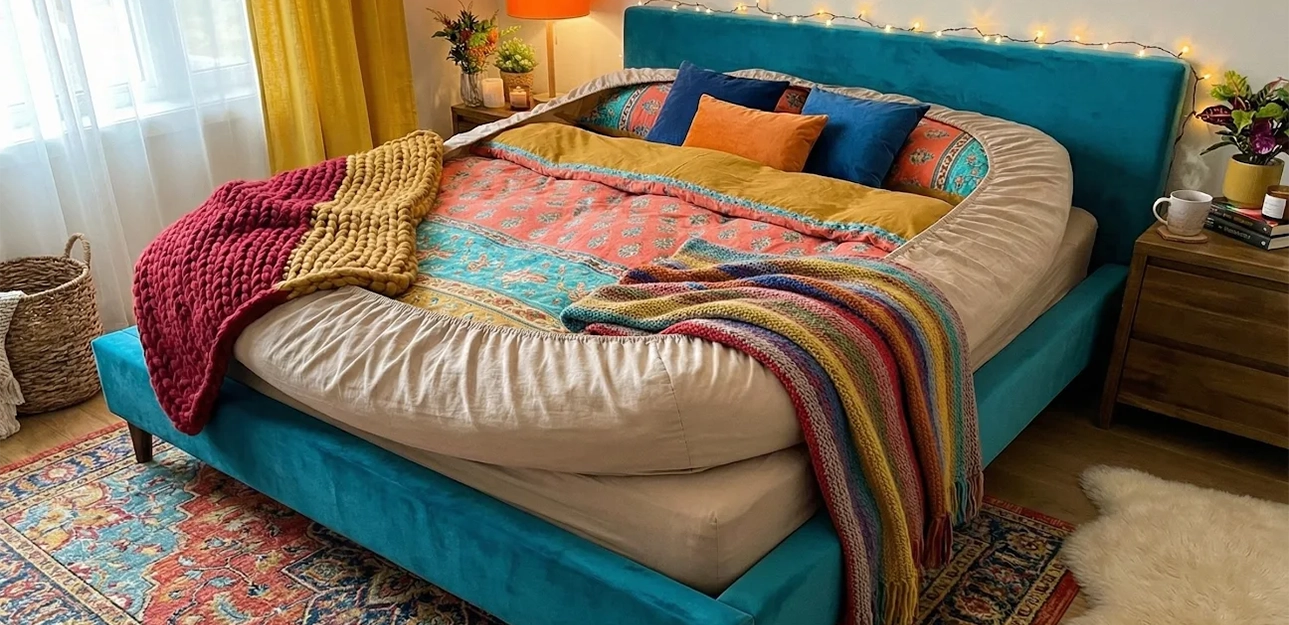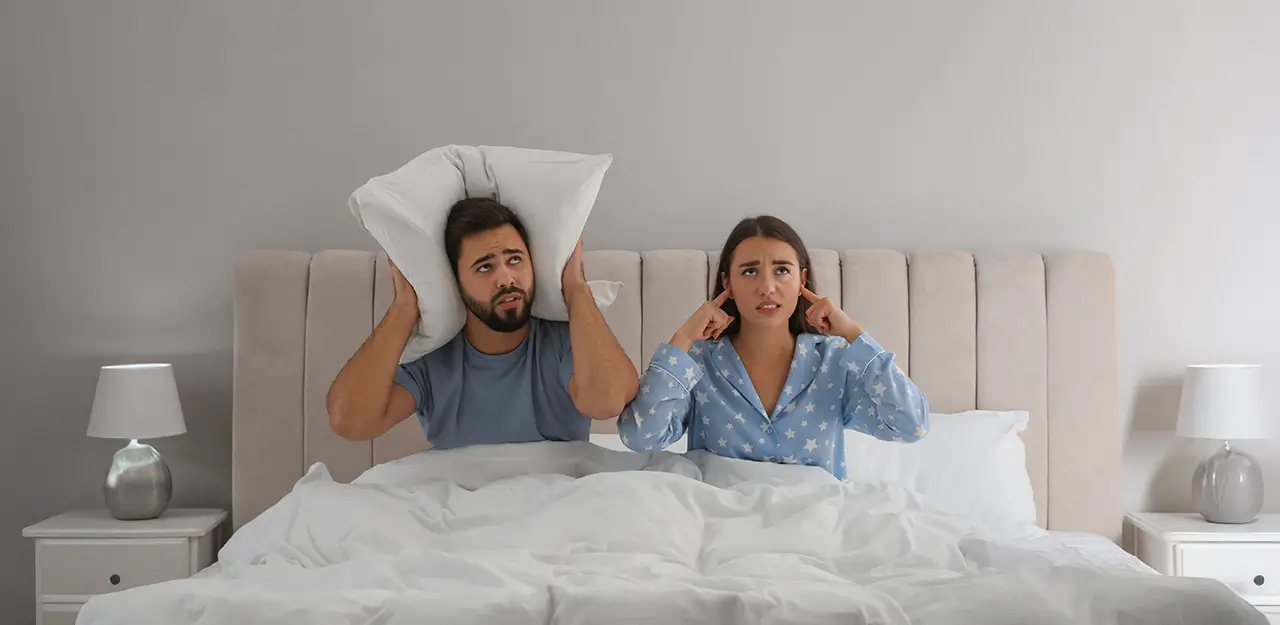
What is the Sleepy Girl Mocktail – and does it work?
Most of us know the feeling of laying in our beds, staring at the ceiling and counting sheep - but
to no avail.
According to research, 36%[1] of UK adults say they struggle to get to sleep at least once a week,
while 30%[2] have poor quality sleep.
And with the darker nights creeping in, sleep is even more important. Research suggests that
we may need more sleep in the winter months, compared to the summer. But if you’re one of
those people who struggles with their sleep, a viral drink may have the answer.
TikTok creator Gracie Norton shared a video on the platform showcasing the Sleepy Girl
Mocktail - a drink created to help you get a better night’s sleep. Having garnered more than 100
thousand likes, and the recipe earning more than 1.5 billion views, it has gained millions of fans.
But does it work?
As lovers of all things sleep, the team here at Mattress Online wanted to take a deeper look into
TikTok’s favourite sleep aid.
So, what exactly is the Sleepy Girl Mocktail?
The Sleepy Girl Mocktail is essentially a combination of ingredients designed to help you get a
good night’s sleep. Featuring tart cherry juice, magnesium glycinate powder and lemon
flavoured water or sparkling water, the recipe is said to aid in sleep, helping you not only get to
sleep faster, but get a better quality of sleep when you do.
The full Sleepy Girl Mocktail recipe:
- Ice
- Pure tart cherry juice
- 1 tablespoon of magnesium glycinate powder
- Lemon flavoured soda or sparkling water
There are no set measurements, and anyone wanting to try the mocktail can adjust it to their
individual tastes. However, it is advised you follow expert advice on the safe daily intake of
magnesium (400mg daily, on average) and consider other beverages and foods you have
consumed throughout the day.
Does the Sleepy Girl mocktail work for aiding sleep?
While it may seem like a random mix of ingredients, there is science behind it.
Firstly, tart cherry juice is known to contain melatonin, a sleep hormone often taken as a
supplement to aid with sleep. The idea is that incorporating this juice into your bedtime routine
may augment the melatonin your body naturally produces when it’s tired, resulting in a quicker
transition into sleep.
Magnesium glycinate is a well-regarded supplement that is known for its potential to contribute
to better sleep. It is said that it can help when it comes to primary insomnia by aiding relaxation
due to interacting with certain neurotransmitters, decreasing cortisol levels, and increasing
melatonin.
Topping up the mocktail with soda or water can also help you get some shut eye. While
dehydration isn't a direct cause of insomnia, it can contribute to poor sleep.
While the cocktail might work for some, others may still struggle to drift off at bedtime. So if
you’re yet to be convinced by the Sleepy Girl Mocktail, here are some foods experts
recommend to help you sleep through the night:
Carbohydrates (e.g., pasta and rice):
Despite being labelled as the enemy in many diets, carbs are an essential part of our diets.
They can also contribute to improved sleep due to the presence of tryptophan, an amino acid
that produces melatonin.
It is best to opt for complex carbs, such as brown rice or whole grains to avoid blood sugar
spikes.
B Vitamins (from protein sources like poultry and nuts):
B vitamins are crucial for brain function, and are involved in the production of melatonin. This
means that a slight deficiency can disrupt sleep.
Vitamin B12, in particular, is a key vitamin for sleep, helping to control sleep. It is found in
animal based foods, so for vegetarians and vegans, incorporating plenty of nuts and lentils can
help to increase B12 levels in the body.
Melatonin (from plant foods, such as peppers):
While the body does produce melatonin naturally, certain plant-based foods, particularly
peppers, mushrooms, legumes, and select berries, contain melatonin, and as such, possess
natural sedative properties.
Magnesium Sources (seeds like pumpkin, hemp, sesame, sunflower, flaxseeds, almonds,
and dried thyme):
Essential for muscle relaxation, magnesium enhances melatonin secretion, promoting better
sleep. While magnesium supplements can be used to increase magnesium levels, it is always
advised to get enough magnesium from a balanced diet.
Zinc, (found in oats, wheat germ, sesame seeds, oysters, meat and eggs):
A zinc deficiency can lead to a decrease in sleep quality. Much like magnesium it enhances
melatonin secretion and contributes to the transformation of tryptophan into serotonin and then
into melatonin. Be sure to incorporate oats, sesame seeds, meat and eggs into your diet.
Supplements and Sleep:
Some supplements contain ingredients like sugar and caffeine that have the potential to
interfere with sleep. Therefore we always advise researching your supplements before taking
them - especially if you take them before bed.
Experts do advise you refrain from taking vitamin B, multivitamins, energy herbs, vitamin D,
calcium, and vitamin C in the run up to bedtime, however.
For optimal absorption and to avoid late-night cravings and potential indigestion, it is advisable
to take fat-soluble vitamins (A, D, E, and K) with meals during breakfast, lunch, and dinner.
References
- Mental health statistics 2023: Understand the latest trends
- UK adults report poorer sleep, seeing friends less often and exercising less as financial strain takes its toll - new survey results
About our Team
PR professional and ex-broadcast reporter, Sharon combines 20 years of experience to highlight a wide variety of lifestyle topics related to sleep and wellbeing.
Related Articles
TikTok’s “Potato Bed” trend is blowing up – but can it actually help you sleep?
Sales Enquiries
Mon-Sat: 9:30am - 5:30pm
Sunday: 10am - 4pm
Customer Service
Mon-Sat: 9:30am - 5:30pm
Sunday: 10am - 4pm












